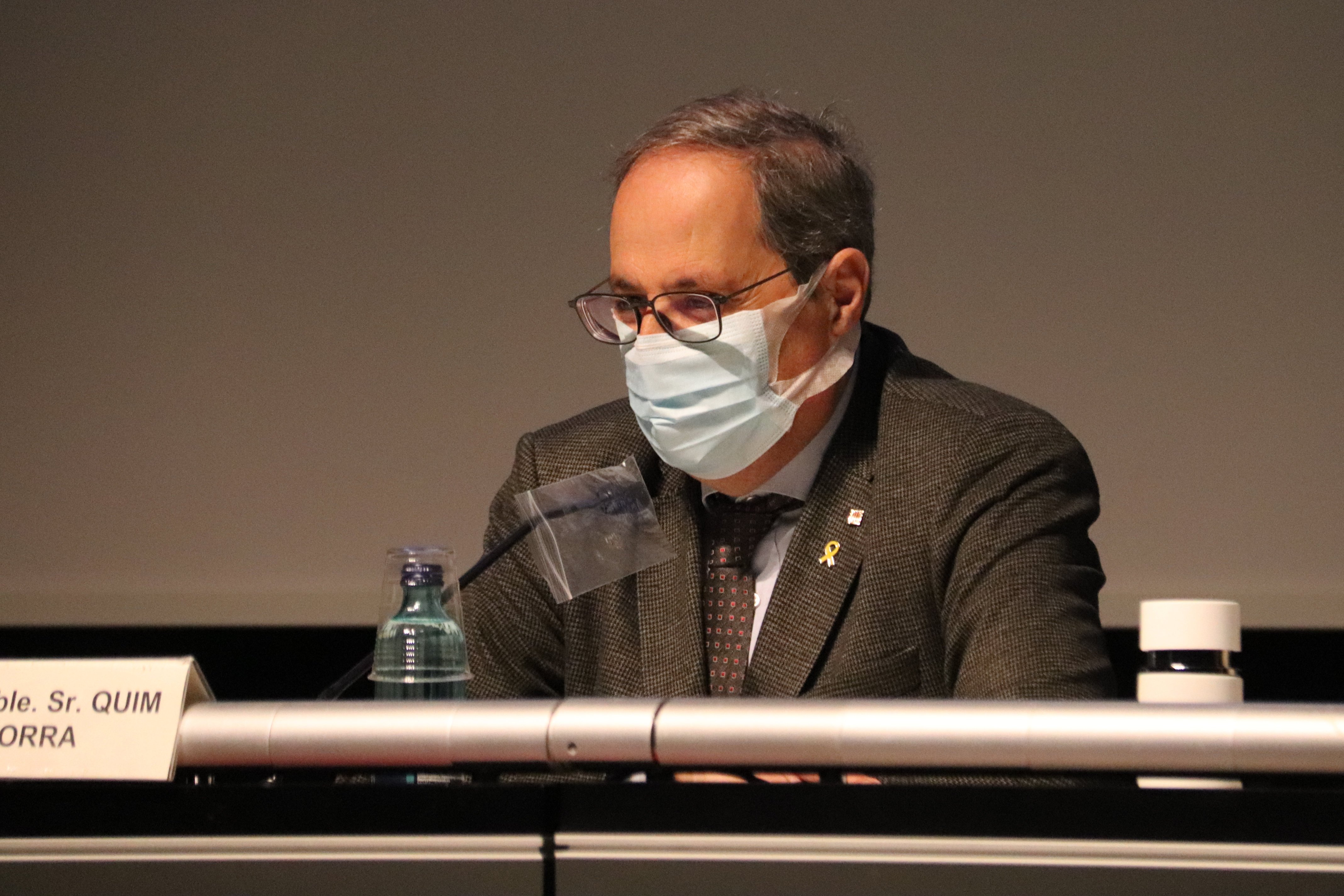Former Catalan president Quim Torra plans to defy the Spanish Supreme Court. Torra has affirmed that he won't pay the 8,500 euros which is the total of three fines imposed by Spain's Central Electoral Commission (JEC) for hanging yellow ribbons and other symbols on public buildings.
The court has dismissed Torra's appeals against the three 2019 electoral commission decisions to fine him for breaching the "duty of political neutrality of public authorities in electoral periods."
Given this judicial decision, the former president replied via his Twitter profile stating that “of course” he had no intention of paying the quantity. "It was my duty to make it public that in [the Spanish] state, as denounced by the UN, dissidents are being persecuted and those who disagree are being imprisoned," he added.
Torra also reproached the court for the informality in the way it addressed hom, referring to him as "Joaquim Torra": "To you, president Torra; I ask you to correct that." In Catalonia, ex-presidents are, in formal use, addressed using the title of "president".

Quim Torra's tweet / @QuimTorraiPla
Meanwhile, in another post, he asked the Twitter community to help him promote a hashtag to "trending topic" status: #nefast155, which translates as "atrocious 155”, referring to the Spanish state's 2017 direct rule over Catalonia under Article 155 of the Constitution. The phrase is one of the statements Torra made for which he was fined. Twitter users responded.

Trending topics in Spain on the afternoon of 18th March 2021/ Twitter
The three fines, a total of 8,500 euros
The high court upheld two fines of 3,000 euros each and one other of 2,500, considering that these electoral body decisions to oppose the fines were "in accordance with the law" and seeing the size of the fines as "proportionate". The fines were not only for the displaying of yellow ribbons and other "partisan" symbols, but also for an email addressed to civil servants and some of the content of an institutional message on Sant Jordi's Day 2019 with content which, the court stated, "fully coincided" with that of some political parties standing in the elections. In fact, some of Torra's message that day was given in English.
Today's court decision states that, yellow ribbons and pro-independence estelada flags are not symbols that represent all the citizens of Catalonia and they favoured some of the political parties running in the Spanish general election that was held just a few days later on April 26th.
With regard to the Sant Jordi message, the Supreme Court believes that the then-president made "statements incompatible with his duty of neutrality" during the election period and that they cannot be framed as freedom of expression. “Fundamental rights are not conceived as an instrument of the public authorities, but as a means of protecting citizens,” the ruling says.
In relation to the third decision, on the e-mail addressed to Catalan public servants, also on Sant Jordi's day, the Supreme Court says that talking about an "atrocious 155" and the "exile" of President Carles Puigdemont are "political assessments of certain facts".
The Supreme Court comments that these are facts that would not be punishable if it were not for the fact that they occurred during an election campaign, subject to a specific legal regime.
President Torra was removed from office in September 2020 after a disobedience conviction due to another element which he hung on the Catalan government palace: a banner reading "Free political prisoners and exiles". That banner also included a yellow ribbon - a symbol used in Catalonia to express solidarity with the pro-independence leaders who were imprisoned or went into exile from 2017 onwards.
Main image, president Quim Torra / ACN

